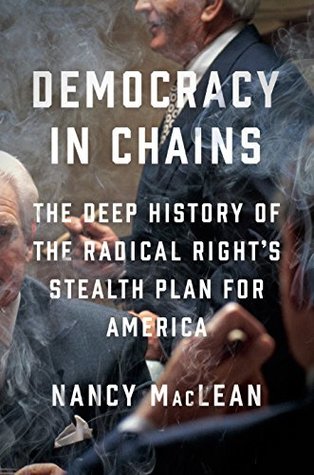When John C. Calhoun made his case for minority veto power like that which Buchanan and Tullock were advocating, Madison made clear in unequivocal language that he rejected it, saying that to give “such a power, to such a minority, over such a majority, would overturn the first principle of free government, and in practice necessarily overturn the government itself.” Yet Buchanan understood that by claiming the imprimatur of Madison, and Jefferson, too, for his research agenda, he would be better able to fight off critics of the radical vision he was advancing.
Welcome back. Just a moment while we sign you in to your Goodreads account.


